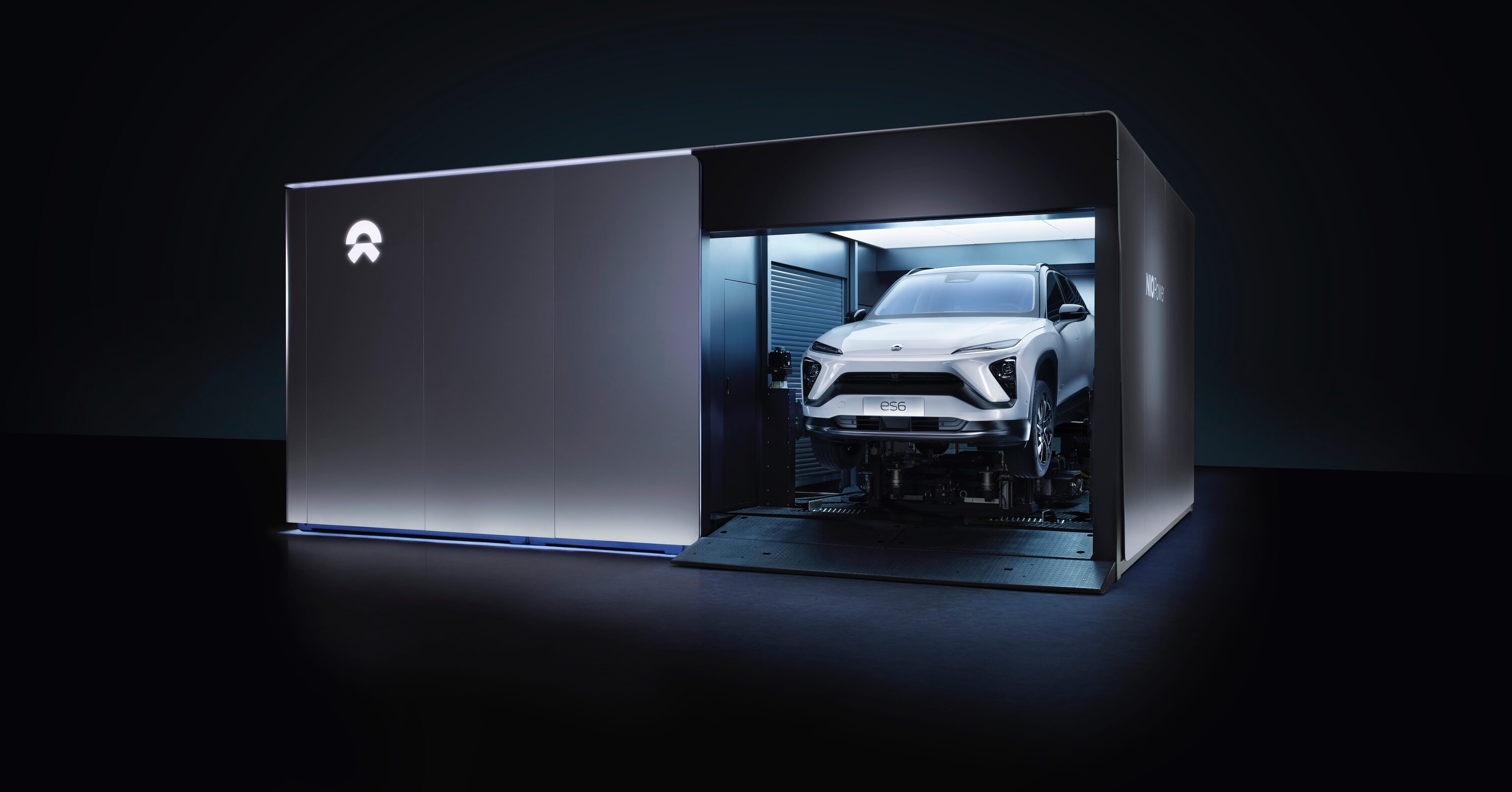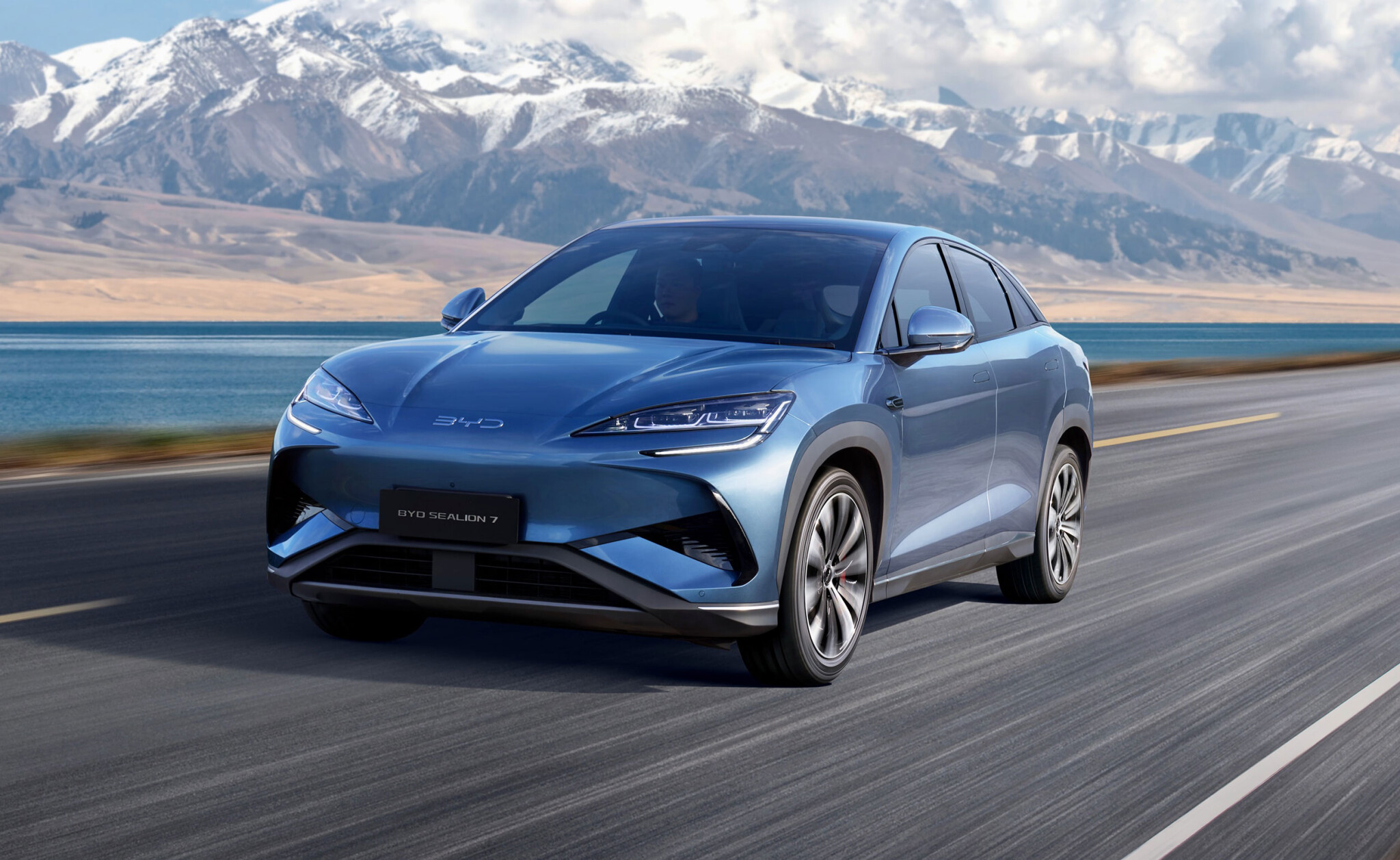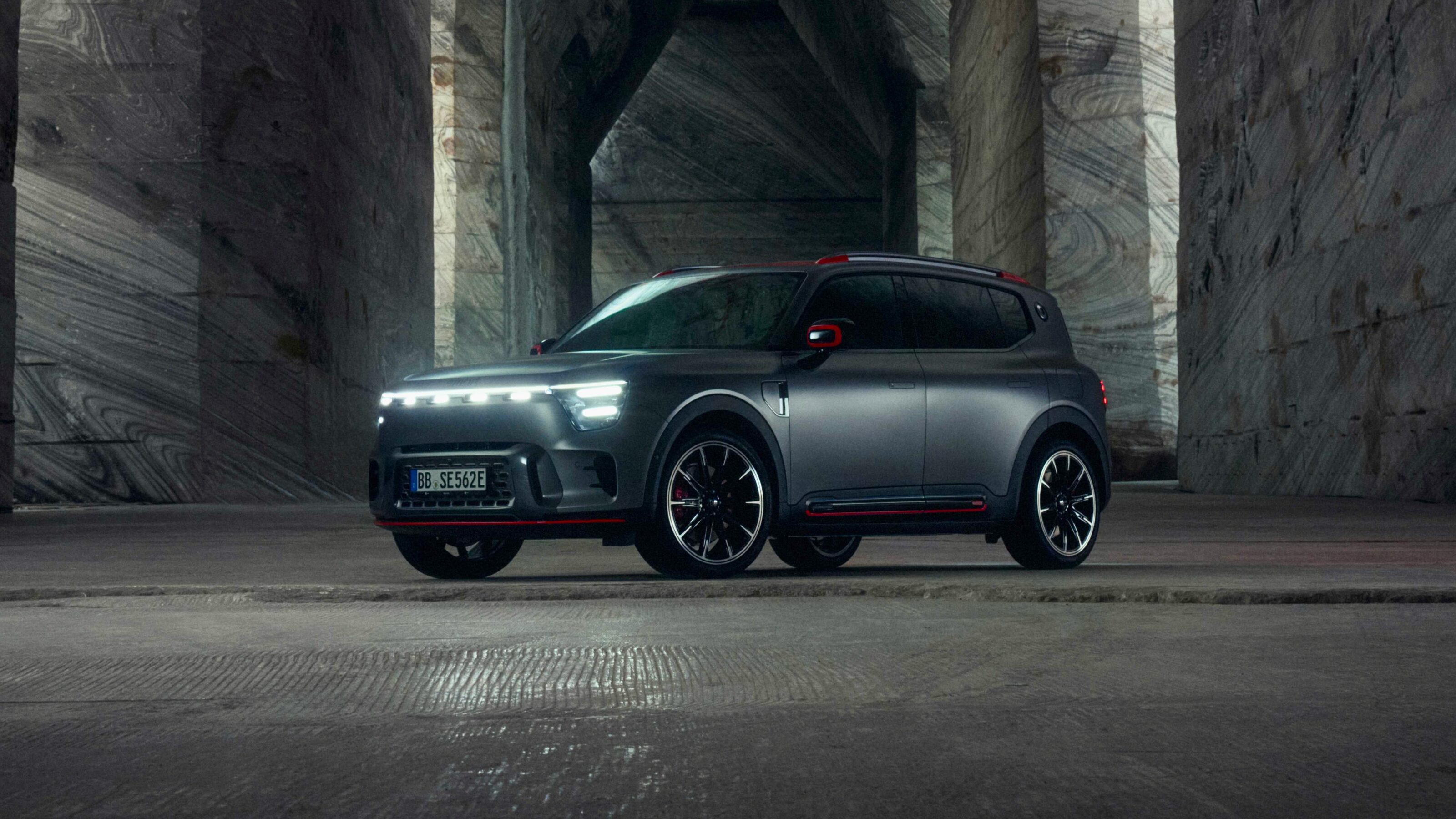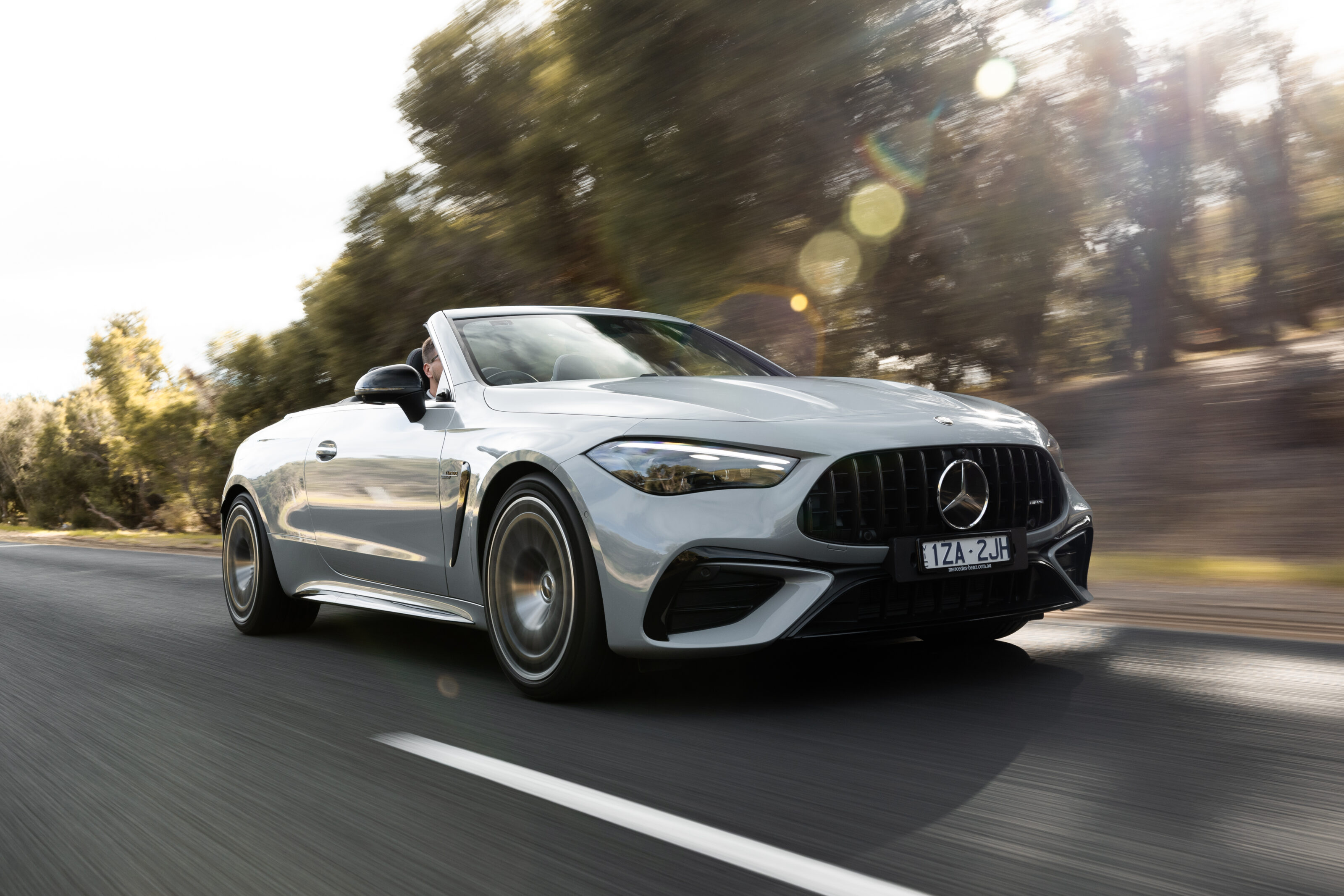In and out in under three minutes, that’s the dream. Just to be clear, I’m talking about giving your EV’s driving range a massive shot in mere moments.
Snapshot
- EV battery swapping, a forgotten dream, is on the comeback
- Volvo parent Geely is now diving into the concept
- LDV has previously said it wants to do battery swaps in Australia
Chinese EV manufacturer Nio (styled NIO) is joining forces with Geely – compatriot carmaker and giant parent company of Volvo, Polestar and Lotus – to expand the reach of its EV battery swapping technology.
This collaboration could have a significant impact on the EV market in China if not globally, by jointly developing standards, advancing technology, and models capable of utilising the technology.
Geely becomes the second major carmaker to align with Nio in the battery swapping realm – the other being Changan Auto, which focuses primarily on the Chinese market and has no major stake in any of the brands currently sold in Australia.
The Nio-Geely partnership is based on a “co-investment, co-construction, shared, cooperative” model, aiming to streamline battery asset management, construct standardised swapping infrastructure, and design vehicles compatible with both companies’ systems.
Below: Nio’s map of battery swap locations in China, totally 2103 so far.
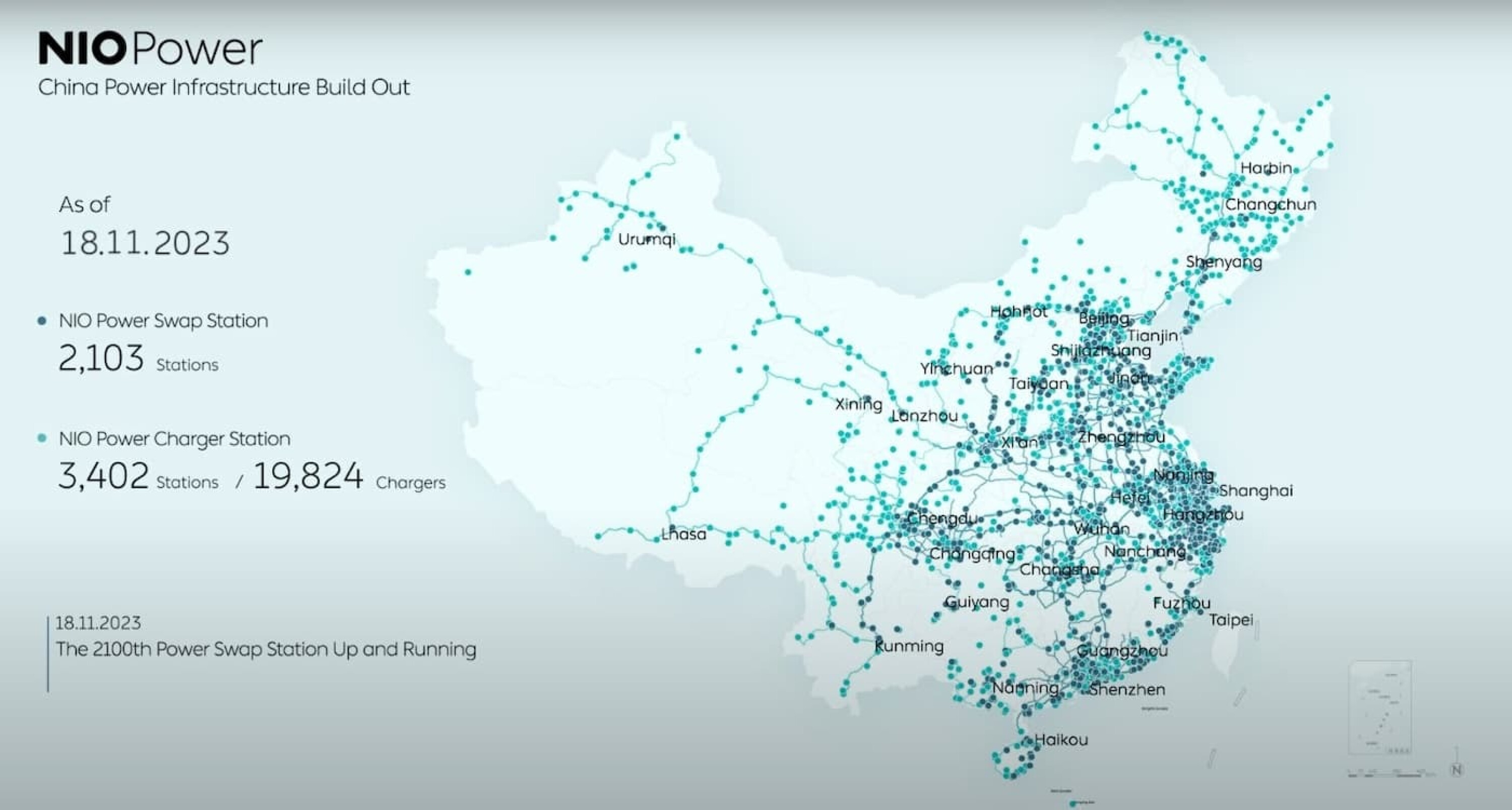
This initiative is particularly significant considering the potential of battery swapping to ease pressure on power grids during peak recharging times. Analysts and executives, however, note that the full practicality of this method hinges on further standardisation of batteries.
Nio, a prominent proponent of battery swapping, plans to nearly double its swapping stations in China within the current year. Geely, on its part, had announced plans in 2021 to establish 5,000 battery swapping stations worldwide by 2025, with 300 already operational. The partnership with Nio is expected to further bolster these efforts.
While shares of Nio saw a slight dip following the announcement, the long-term implications of this partnership could be substantial for both companies. As Nio and Geely forge ahead, their joint venture could set new benchmarks in the EV industry, potentially attracting more collaborations in the future.
Will we see EV battery swapping in Australia?
We certainly could, given the money being thrown around by the Chinese brands – but realistically that market is comfortably big enough for this to be a profitable venture without ever expanding beyond its own borders.
This means we may never see the concept introduced into local Volvo, Polestar or Lotus models – although if any company has the resources and budget to gamble on a potentially game-changing battery-swapping network, it’s… well, all of the Chinese brands.
Nio and Geely aren’t the only ones looking at this concept, either, with LDV – known as Maxus in China – currently running a battery-swapping trial with the electric LDV Mifa 9 in its home market. The business has told Australian media that it sees potential for it to come here.
“In China, Saic Motor Group is building battery swapping stations, we are also planning to apply this technology to Mifa vehicles here in Australia”, added Xie. The $106,000 LDV Mifa 9 people mover has 430km WLTP driving range and with 120kW DC fast-charging can go from 30-80 per cent charge in 36 minutes.


